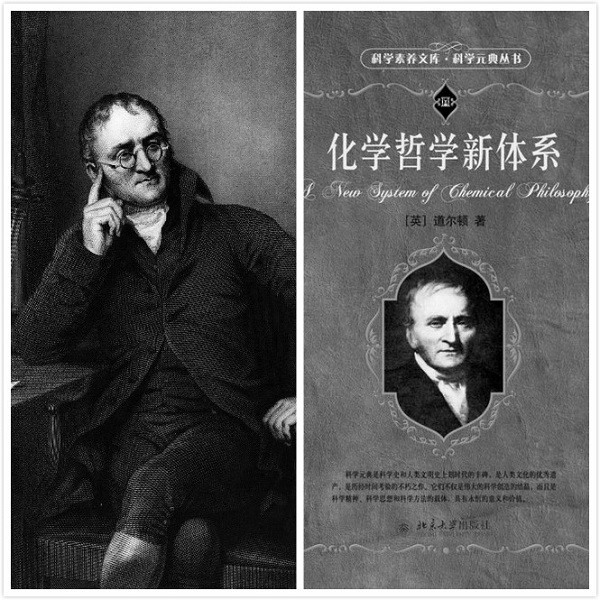The work made Dalton famous—albeit in a low-key, English Quaker sort of way. In 1826, the French chemist P .J. Pelletier traveled to Manchester to meet the atomic hero. Pelletier expected to find him attached to some grand institution, so he was astounded to discover him teaching elementary arithmetic to boys in a small school on a back street. According to the scientific historian E. J. Holmyard, a confused Pelletier, upon beholding the great man, stammered:
這項成就使道爾頓聞名遐邇——即使是以一種英國貴格會式的低調。1826年,法國化學家P.J.佩爾蒂埃來到曼徹斯特,想會一會這位原子英雄。佩爾蒂埃以為他屬于哪個大機構,因此,當他發現道爾頓在小巷里的一所小學教孩子們基礎算術的時候,不由得大吃一驚。據科學史家E.J.霍姆亞德說,佩爾蒂埃一見到這位大人物頓時不知所措,結結巴巴地說:

“Est-ce que j’ai l’honneur de m’addresser à Monsieur Dalton?” for he could hardly believe his eyes that this was the chemist of European fame, teaching a boy his first four rules. “Yes,” said the matter-of-fact Quaker. “Wilt thou sit down whilst I put this lad right about his arithmetic?”
“請問,這位是道爾頓先生嗎?”因為他無法相信自己的眼睛,這位歐洲赫赫有名的化學家竟然在教小孩子加減乘除。“沒錯兒,”那位貴格會教徒干巴巴地說,“請坐,讓我先教會孩子這道算術題。”
Although Dalton tried to avoid all honors, he was elected to the Royal Society against his wishes, showered with medals, and given a handsome government pension. When he died in 1844, forty thousand people viewed the coffin, and the funeral cortege stretched for two miles. His entry in the Dictionary of National Biography is one of the longest, rivaled in length only by those of Darwin and Lyell among nineteenth-century men of science.
雖然道爾頓想要遠離一切榮譽,但他仍違心地當選為皇家學會會員,捧回一大堆獎章,獲得一筆可觀的政府退休金。他1844年去世的時候,40000人出來瞻仰他的棺木,送葬隊伍長達3公里多。他在《英國人名詞典》中的條目是字數最多的之一,在19世紀的科學界人士當中,論長度只有達爾文和萊爾能與之相比。












